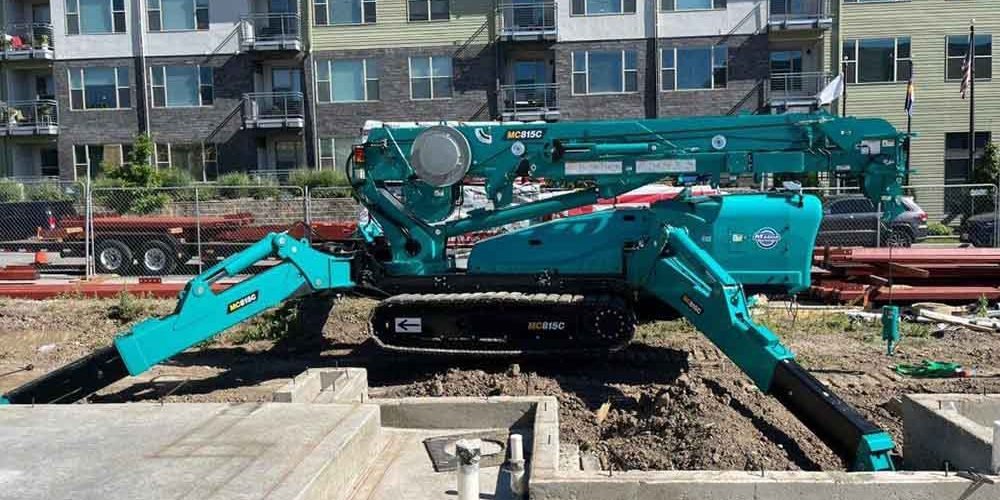Want to explore the world of crane rental services? You’re at the right place! This multifaceted process goes beyond picking out the largest or most impressive crane. The journey can be complex, from identifying the right equipment for your needs and handling logistics to ensuring strict safety measures.
The biggest problem often lies in maintaining a balance between cost and quality of service. This blog aims to demystify crane rental intricacies for you.
We will discuss pivotal aspects such as managing expenses, understanding the diverse crane types, and tips on choosing a trustworthy rental provider, all to steer your project toward a smooth completion.
Table of Contents
The Importance Of Cost-Value Balance In Crane Rental
Achieving a cost-value equilibrium in crane rental services is a vital aspect you cannot ignore. Shrewd budgeting ensures you get the most value for your money without compromising the quality of service.
The Repercussions Of Neglecting Either Cost Or Value
On the flip side, sacrificing value for cost can lead to unsatisfactory results, while overlooking cost can strain your budget.
In the context of crane rental, ignoring value may mean dealing with frequent equipment breakdowns and delays, impacting your project timeline negatively.
Disregarding costs may lead to financial burdens that could have been avoided with meticulous planning. It’s all about finding that sweet spot.
Understanding Crane Rental Costs
Deciphering the costs of renting a crane is vital to smart project planning. Let’s break it down, shall we?
- Base rental cost: This is the initial cost you pay to rent the crane. It varies depending on the type of crane, rental duration, and, sometimes, the complexity of your project.
- Transportation costs: The expense of moving the crane from the rental company to your project site and back can add a significant chunk to your bill. Factors like distance and logistics complexity come into play here.
- Insurance costs: Safety is paramount in any project. Insuring the crane covers any unexpected accidents or damages, thus providing a financial safety net.
- Operational costs: These are expenses incurred during the crane’s operation, such as fuel costs, operator’s wage, and any additional equipment or attachments needed.
- Maintenance and repairs: Regular servicing and unexpected repairs can also contribute to the total cost.
Each of these components influences the overall expense of crane rental. Ignoring any could lead to unwelcome surprises, making it crucial to consider all these factors while budgeting for your crane rental services.
Assessing the Value of a Crane Rental
It’s not just about the price tag when diving into crane rental services. The actual value of a crane rental is much more than its cost. Let’s delve into the key factors:
- Crane performance and reliability: The ability of the crane to perform efficiently and consistently is a primary value indicator.
- Support services (maintenance, repairs): A rental company that provides prompt and effective support services, like regular maintenance and rapid repairs, certainly enhances the value of the service.
- Training and certification of operators: Well-trained and certified operators ensure efficient crane handling and significantly reduce the risk of mishaps.
- Safety standards and compliance: Companies that adhere to stringent safety standards and regulations ensure your project runs smoothly without any safety hitches.
All of these factors play an essential role in defining the overall value of your crane rental. A valuable rental isn’t just about getting a crane for your project; it’s about ensuring the entire process is efficient, safe, and hassle-free.
Cost vs. Value: Making the Right Decision
How To Balance Cost And Value In Crane Rental Decisions?
Balancing cost and value is crucial in making informed decisions in crane rental services. It’s like walking a tightrope – you don’t want to lean too heavily on one side.
Sometimes, a higher upfront cost may offer better long-term value. For instance, choosing a more expensive crane that’s more reliable, comes with well-trained operators, and meets all safety standards could prevent unforeseen costs, like repairs, project delays, or safety violations.
On the other hand, a seemingly low-cost rental might be costly in the long run if it doesn’t meet these criteria.
Equally, there could be situations where a lower-cost crane rental may offer ample value, especially if your project is simple and the crane’s performance isn’t critical to the project timeline or quality.
The Importance Of Considering Long-Term Costs And Benefits
The key here is not to look at immediate costs but to consider the potential long-term costs and benefits. A more holistic approach to price vs. value in crane rental decisions can ensure a smoother, more efficient project execution and potentially save you from unexpected expenditures.
Final Words
Navigating the complexities of crane rental services involves a keen understanding of costs and value. Achieving the right balance between the two can significantly impact your project execution.
So, remember, when it comes to crane rental, it’s not just a financial decision. It’s a strategic one. Make informed choices and ensure the success of your project.





